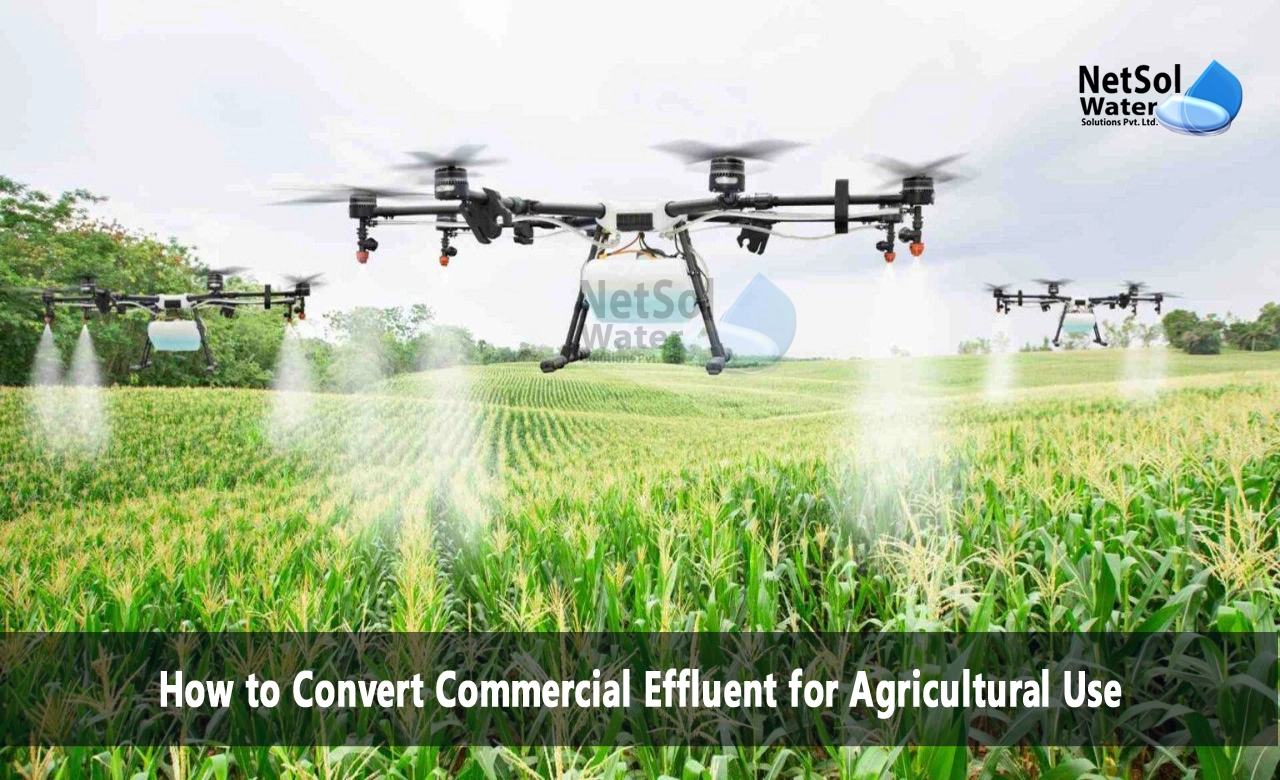How to Convert Commercial Effluent for Agricultural Use?
As the world grapples with the pressing challenges of water scarcity, population growth, and food security, the idea of repurposing commercial effluent for agricultural use has emerged as a potential solution. Commercial effluent, or wastewater generated from industrial and commercial processes, has traditionally been viewed as a waste product that requires treatment and disposal. However, with the development of advanced treatment technologies and a growing emphasis on sustainability, some experts suggest that properly treated effluent could be a valuable resource for irrigation and crop production. We will explore the benefits, risks, and considerations surrounding the use of commercial effluent for agricultural purposes, providing a comprehensive analysis of this controversial practice.
Benefits of Using Treated Effluent for Agriculture
The potential benefits of using treated effluent for agricultural purposes are multifaceted. Firstly, it presents an opportunity to address water scarcity challenges, particularly in arid and semi-arid regions where freshwater resources are limited. By utilizing treated effluent for irrigation, the strain on freshwater supplies can be alleviated, allowing for the conservation of precious potable water resources. Additionally, effluent often contains valuable nutrients, such as nitrogen, phosphorus, and potassium, which can act as natural fertilizers, reducing the need for synthetic fertilizers and promoting sustainable agriculture.
Moreover, the use of treated effluent can help mitigate the environmental impact of wastewater discharge. Instead of releasing partially treated or untreated effluent into natural water bodies, which can lead to pollution and ecosystem degradation, repurposing it for agricultural use offers a controlled and purposeful means of disposal. This practice can contribute to the reduction of environmental contamination and the preservation of aquatic ecosystems.
Furthermore, the utilization of treated effluent for irrigation can have economic benefits for farmers and communities. By reducing the reliance on freshwater and synthetic fertilizers, the costs associated with agricultural production can be lowered, potentially increasing profitability and supporting the financial sustainability of farming operations.
Risks and Concerns Associated with Effluent Reuse
Despite the potential benefits, the use of commercial effluent for agricultural purposes is not without risks and concerns. One of the primary concerns is the presence of contaminants in the effluent, even after treatment. Depending on the source and treatment processes employed, effluent may contain heavy metals, organic pollutants, pathogens, and other harmful substances that can accumulate in the soil, crops, and the food chain, posing risks to human health and the environment.
Additionally, the long-term impact of effluent application on soil quality and plant growth is not fully understood. Continuous application of effluent may lead to the buildup of salts, altering soil chemistry and potentially affecting crop yields and soil fertility over time. Furthermore, the presence of specific compounds, such as pharmaceuticals and personal care products, in effluent raises concerns about their potential effects on soil microorganisms, plant metabolism, and the overall ecosystem.
Another significant concern is the risk of pathogen transmission through the use of inadequately treated effluent. Pathogens found in effluent, such as bacteria, viruses, and protozoa, can contaminate crops and agricultural products, leading to the spread of foodborne illnesses and posing risks to farm workers and consumers alike.
Public perception and acceptance of effluent reuse in agriculture also present challenges. Consumers may have reservations about consuming crops irrigated with treated effluent due to perceived health risks or cultural stigma, which can impact the marketability and economic viability of products grown using this practice.
Addressing Risks and Ensuring Safe Effluent Reuse
To address the risks associated with effluent reuse for agricultural purposes, strict regulations, comprehensive treatment processes, and rigorous monitoring are essential. Effluent treatment technologies must be continuously improved to remove a wide range of contaminants effectively, including heavy metals, organic pollutants, pathogens, and emerging contaminants of concern.
Implementing multi-barrier treatment approaches, such as advanced oxidation processes, membrane filtration, and disinfection techniques, can significantly enhance effluent quality and safety. Additionally, regular monitoring and testing of effluent quality, soil conditions, and crop uptake should be conducted to identify and mitigate potential risks proactively.
Furthermore, the development of crop-specific guidelines and regulations is crucial to ensure the safe application of effluent. Different crops may have varying tolerances and uptake rates for specific contaminants, necessitating tailored guidelines and restrictions based on scientific evidence. Establishing clear standards for effluent quality, application rates, and crop selection can help minimize potential risks to human health and the environment.
Public education and awareness campaigns are also vital for promoting acceptance and alleviating concerns surrounding effluent reuse in agriculture. Transparent communication about the treatment processes, safety measures, and potential benefits can help build trust and confidence among consumers and stakeholders.
Conclusion
The repurposing of commercial effluent for agricultural use presents both opportunities and challenges. While it holds potential benefits for water conservation, nutrient recycling, and economic sustainability, it also raises significant concerns regarding contaminant exposure, soil quality, pathogen transmission, and public acceptance.
Ultimately, the safe and sustainable reuse of effluent in agriculture hinges on the implementation of robust treatment technologies, stringent regulations, comprehensive monitoring, and a thorough understanding of long-term impacts. By addressing these challenges through collaborative efforts among regulatory bodies, scientists, industry professionals, and the public, it may be possible to harness the potential of effluent reuse while mitigating associated risks.
The decision to pursue effluent reuse in agriculture should be carefully weighed, considering region-specific conditions, available resources, and the capacity to implement and enforce rigorous safety measures. With responsible management and a commitment to continuous improvement, effluent reuse could potentially contribute to sustainable water and nutrient management in agriculture.
Netsol Water is Greater Noida-based leading water & wastewater treatment plant manufacturer. We are industry's most demanding company based on client review and work quality. We are known as best commercial RO plant manufacturers, industrial RO plant manufacturer, sewage treatment plant manufacturer, Water Softener Plant Manufacturers and effluent treatment plant manufacturers. Apart from this 24x7 customer support is our USP. Call on +91-9650608473, or write us at enquiry@netsolwater.com for any support, inquiry or product-purchase related query.



